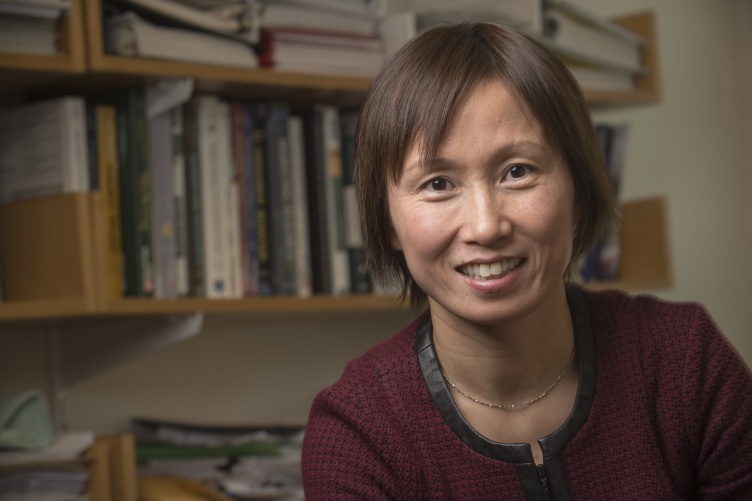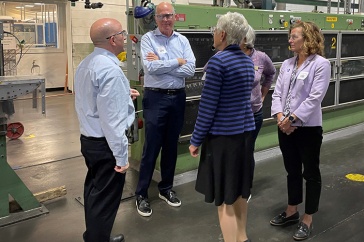
When Shuili Du was a doctoral student at Boston University, the academic field of marketing still focused on the marketing mix (i.e., product, price, promotion and channel management/retailing) and less on the company behind the marketing activities. Then, in one of her doctoral courses, marketing professor C.B. Bhattacharya shared his viewpoint of the importance of companies being good corporate citizens. This piqued her interest, and Bhattacharya wound up mentoring Du in the budding field of corporate social responsibility (CSR).
The idea of using business to do good wasn’t exactly new, but it hadn’t attracted serious academic research until the early 2000s, when Du came of professional age.
Du drew inspirations for her research from daily observations and interactions with fellow consumers. For example, en route to her native China in the early 2000s, during her visa interview with an American consulate officer in Shanghai, she talked about her research on CSR.
“I used Stonyfield Farm yogurt as an example of socially responsible brand,” Du recalled. “The consulate officer got excited about Stonyfield. It turned out he was a big admirer of Stonyfield’s commitment to sustainability. He said he not only liked the product, but he loved the brand.” This incident, said Du, inspired her to conduct a study on how CSR cultivates an emotional bond with consumers and strengthens brand loyalty.
Du went on to co-author, with Bhattacharya and others, important studies of the positive impacts of CSR for a wide range of industries. With over 15 peer-reviewed articles in top-tier journals, Du is a leading global scholar in analyzing how corporate social responsibility impacts organizations’ and brands’ performance. Her impact on the field was recently recognized with a prestigious Fulbright Distinguished Chair position at Hanken School of Economics in Finland for fall 2019. Her current research focus involves examining how companies should revise their corporate social responsibility strategies and programs to address challenges in the age of artificial intelligence.
As a teacher of undergraduate and graduate students, Du strives to bring the practical applications of marketing theories into the classroom. She encourages her MBA students to incorporate issues they’re facing in their current jobs into class projects. She also enjoys being more expansive with her undergraduate students, who often arrive on campus with little understanding of marketing’s broad applications.
“Before taking my principles of marketing class, students think marketing is sales and advertising,” Du said. “But they learn that marketing touches everything from consumer behavior, marketing research, and segmenting the market, to brand positioning, new product development, pricing, and the commonly understood communication side of the subject.”
For Du, business is about creating value for stakeholders, and if running a company more sustainably holds value for them, she wants students to understand that the marketer’s job is “to build it into the company – not as an overlay but as a core component of the brand.”
-
Written By:
Dave Moore | UNH Cooperative Extension



















































